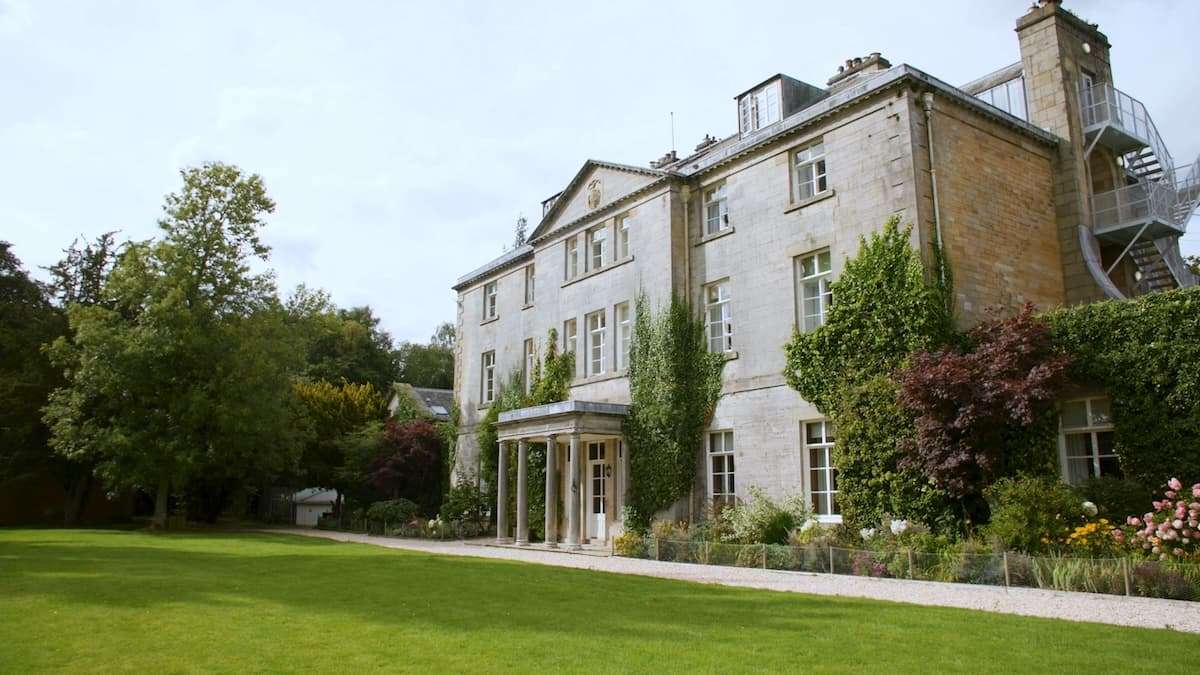
Private Rehab Treatment Near Glasgow
Castle Craig is a leading residential drug and alcohol rehab located in the Scottish Borders serving people from across the UK, including Glasgow. We provide treatment for substance addiction, accessible through private funding, private health insurance, and NHS Greater Glasgow and Clyde referrals.
Inpatient Addiction Rehab Serving Glasgow, Scotland
Castle Craig is a private drug and alcohol rehab centre located in the peaceful countryside of the Scottish Borders, under an hour and a half’s drive from Glasgow. We welcome patients from across the city, including areas such as the West End, Southside, East End, Merchant City and surrounding suburbs like Bearsden and Milngavie. Our facility near West Linton, close to the village of Blyth Bridge (EH46), offers a therapeutic and secluded setting surrounded by the Pentland Hills.
As the UK’s longest-standing, family-run rehab clinic, we provide evidence-based care within a calming rural estate designed to promote healing and long-term recovery. With over 37 years of expertise, Castle Craig offers a combination of clinical excellence, compassionate support and tailored treatment from a multidisciplinary team. To learn more about our residential addiction treatment near Glasgow, call us today on 01721 546 263 – our admissions staff are here to help you start your journey with a friendly and supportive conversation.
Located One Hour From Glasgow
Castle Craig rehab clinic is based just one hour from Glasgow, in a peaceful rural location in the west of the Scottish Borders. You will find both comfort and privacy in our beautiful Georgian country house and grounds.
Castle Craig has retained many of its original features, including magnificent fireplaces, marble pillars, carved panelling and furniture. The main building and other facilities and houses on the estate have been renovated to offer a comfortable and conducive treatment experience.
Our mission is to provide the highest quality and most effective treatment for our patients. We offer many different options for referral and admission for our patients from Glasgow and across Strathclyde.
Castle Craig Has Excellent Reviews From Patients From West Scotland and Across the UK
Castle Craig has earned a 4.6-star rating on Google, reflecting the high standard of care and professionalism patients can experience during their stay with us. People from Glasgow and across the UK consistently highlight the compassion of our team, the effectiveness of our treatments and the life-changing outcomes of their recovery journey.
With over 100 verified reviews on our Google business profile alone, Castle Craig continues to receive praise for its clinical excellence and therapeutic environment. Many patients describe feeling safe, supported, and genuinely cared for, which reflects our dedication to long-term recovery and personal transformation.
Testimonial from Tommy, Glasgow
“I would love to share my story. My recovery date is 28th March 1990. Just over 30 years ago I came to Castle Craig, and [since then] I have not needed or wanted to drink but I had to keep doing the things I learned and that was to be honest, open-minded and willing.”

Start Your Recovery at a Residential Rehab Today
Castle Craig Rehab Centre Location Near Glasgow, Scotland
Castle Craig is a residential drug and alcohol addiction centre located in the peaceful countryside of the Scottish Borders, just under 90 minutes from Glasgow. Surrounded by rolling hills and scenic views, our nature-based setting provides an ideal location for people looking for a calm and confidential space to recover from substance addiction. Despite our rural location, Castle Craig is highly accessible from Glasgow and beyond.
- By Car: For those travelling by car or taxi, Castle Craig is approximately 45 miles from Glasgow. The most direct route follows the M8 or M74 motorway, then connects to the A701 and A72 roads through the southern belt of Scotland. The journey typically takes just over an hour and passes by familiar locations such as Motherwell and Biggar, making it a simple and scenic drive through Lanarkshire and into the Scottish Borders countryside.
- By Train or Public Transport: Travelling by train from Glasgow to Castle Craig is another viable option. Regular, direct services run from Glasgow Central to stations like Edinburgh Waverley, taking around 1 hour to 1 hour and 15 minutes. The route offers a comfortable and relaxed experience, especially for those travelling from the city centre or nearby areas like Partick or Shawlands. Our admissions team can support with arranging transport from nearby stations directly to our facility.
- Pick-Up Services: To make the process as smooth as possible, Castle Craig can help arrange direct pick-up from Glasgow or its surrounding areas, including airport or train station hubs. Whether you are based in the city centre, the West End or areas like Bearsden or Govan, we aim to remove any unnecessary barriers to starting residential addiction treatment with us when you need it most.
Castle Craig’s countryside location, combined with convenient access routes from Glasgow, offers the best of both worlds: clinical excellence and tranquillity, within reach of Scotland’s largest city.
Our Sober Companion and Sober Transport Services
Castle Craig provides sober companion and sober transport services to assist patients in reaching our facility from Glasgow and beyond. Whether travelling by car, plane or train, our dedicated staff can arrange for a companion to accompany you from your location in the UK. We also provide a pick-up service from major transport hubs, such as stations in Edinburgh and Glasgow, to ensure the final leg of your journey is comfortable, safe and stress-free.
Drug and Alcohol Rehab Treatment Serving Communities Near Glasgow
Castle Craig supports people not only in Glasgow itself but also in nearby towns and communities across the West of Scotland. Many residents prefer to stay close to home for recovery, while others travel slightly further for residential rehab in a more discreet, rural setting. Below are several locations whose residents frequently access treatment at our private clinic:
-
Alcohol and Drug Rehab Near East Kilbride
As Scotland’s largest town, East Kilbride has a growing demand for professional drug and alcohol treatment. Local outpatient options include counselling and harm reduction, but many people require more structured support. Residential rehab is often the safest option for those dealing with withdrawal symptoms or repeated relapses.
Castle Craig offers East Kilbride residents access to a medically managed detox and intensive therapy, just over an hour away. Patients benefit from 24/7 care, group support, and tailored relapse prevention planning in a calm, rural environment away from the stress of daily life.
-
Private Addiction Help Serving Helensburgh
Helensburgh residents can access community-led rehab programmes for substance misuse, but severe cases often require a more comprehensive approach. Detoxing at home can be risky, especially when alcohol or opioids are involved, making residential care a safer alternative.
At Castle Craig, patients from Helensburgh receive personalised treatment that addresses both the physical and psychological effects of substance addiction. This includes medical detox, individual and group therapy and ongoing support for long-term recovery.
-
Substance Misuse Treatment Near Cumbernauld
Cumbernauld residents can access outpatient addiction support, but many find that attending appointments while managing daily commitments makes recovery more difficult. For those with long-term dependency, residential rehab treatment is often the most effective solution.
Castle Craig provides a discreet, medically supervised environment where Cumbernauld patients can focus fully on recovery. With access to medical care, therapy sessions and relapse prevention strategies, individuals leave better equipped to rebuild their lives.
-
Residential Recovery Options Accessible From Paisley
As one of the largest towns in Greater Glasgow, Paisley has a variety of community resources for those struggling with addiction. However, outpatient rehab may not provide enough stability for people dealing with severe dependence or co-occurring mental health conditions.
Castle Craig is a trusted option for Paisley residents looking for round-the-clock rehabilitation treatment in a private, therapeutic environment. Our person-centred care plans are built around medical detox where needed, evidence-based therapies and holistic activities that strengthen resilience and promote long-term sobriety.
-
Accredited Addiction Support Near Hamilton
Hamilton’s proximity to Glasgow means residents can access local support networks and NHS addiction treatment. For those in need of urgent intervention or intensive rehabilitation, accredited residential rehab near Hamilton provides a safe and professional space to break the cycle of addiction.
Castle Craig is around an hour’s drive from Hamilton, offering structured detox programmes and therapy plans that address both substance misuse and mental health challenges. This integrated approach helps patients prepare for life after rehab and reduces the risk of relapse.
-
Residential Recovery Treatment Serving Stirling
Stirling’s location in central Scotland gives its residents access to both local addiction treatment options and nearby residential programmes. Community rehab services provide valuable support, but they may not always meet the needs of those struggling with severe addiction.
Castle Craig is a leading choice for Stirling residents seeking inpatient care. With medically managed detox, evidence-based therapy and holistic treatments, patients receive the structured support necessary to achieve lasting recovery in a safe, rural environment.
Find Us
01721 546 263
info@castlecraig.co.uk
Castle Craig,
West Linton, Edinburgh, United Kingdom, EH46 7DH
Residential Addiction Treatment Serving Scotland
Aberdeen | Ayr | Dundee | Dunfermline | Edinburgh | Fife | Glasgow | Hamilton | Inverness | Kirkcaldy | Livingston | Perth | Scottish Highlands | Shetland & Orkney
Types of Substance Addiction Detox and Rehab Programmes in and Near Glasgow, Scotland
People seeking drug and alcohol rehab in Glasgow have access to a range of treatment options to suit their needs. Whether you require detox, residential care or outpatient support, there are many clinics and services throughout the region that can provide private pay, health insurance and NHS pathways to recovery.
The following sections explore some of the most common substance addictions and the types of rehab treatment available near Glasgow and surrounding areas.
-
Residential Addiction Treatment in and Near Glasgow
Residential rehab treatment in Glasgow provides structured, round-the-clock care in a supportive environment. Many people in Scotland’s largest city choose inpatient rehab for its intensive therapy, distance from triggers and focused recovery setting. Drug and alcohol rehab clinics in Glasgow may vary in size, setting and specialisation, offering different types of therapy, detox services and holistic care.
One of the UK’s leading residential rehabs, Castle Craig delivers evidence-based inpatient addiction treatment in a peaceful, countryside location just over an hour’s drive from Glasgow. Our team provides medical detox, structured therapy and continuing care for patients from all areas of the city and across Scotland and the UK.
-
Private Alcohol Detox and Rehabilitation in the Scottish Borders
Alcohol detox centres in Glasgow and close to the Scottish Borders can offer safe, medically supported detox followed by therapy-led care. Treatment may take place in a residential setting or on an outpatient basis, depending on the level of dependence and individual circumstances. Many people seek private options for quicker admission, personalised care and greater privacy.
Private alcohol rehab in West-Central Scotland and surrounding areas provides a variety of treatment options, often combining psychological therapy with physical health support. Patients may also benefit from local aftercare and support groups to aid their long-term sobriety.
-
Cannabis and Cocaine Rehab Programmes Near Northern UK
Addiction to substances like cannabis and cocaine can lead to serious mental health challenges, relationship breakdown and social or legal issues. Cannabis and cocaine rehab in Glasgow or Lanarkshire County offers therapy, group support and relapse prevention to help people break free from psychological and physical dependence.
Castle Craig welcomes patients from Glasgow into our cocaine and cannabis rehab care plans. By combining one-to-one therapy, medical support and a healing rural setting, we help people understand the underlying causes of drug addiction and develop tools for lasting recovery.
-
Heroin, Crystal Meth and Opioid Rehab in West Scotland
Rehabilitation for opioid addiction, including heroin and synthetic drugs like crystal meth, requires structured detox, psychological support and relapse prevention. Drug rehabilitation services in Scotland support recovery through dedicated clinics and community-based services.
Various opioid rehab clinics in Glasgow and the west of Scotland offer both outpatient and residential options for people affected by heroin or methamphetamine addiction. They will often include access to prescribing doctors, mental health practitioners and long-term recovery planning services.
-
Club Drug and Ketamine Detox Near the River Clyde
Club drug use, including ketamine, ecstasy and other stimulants, can lead to serious physical and psychological harm. Ketamine addiction treatment in Glasgow can be found to help patients in need, as well as confidential rehab services in Scotland that address the root of the problem and protect patient privacy. Ketamine detox centres in Glasgow may also include therapy, harm reduction and aftercare planning.
Castle Craig supports patients recovering from ketamine and other stimulant misuse with personalised, structured drug addiction treatment. Our approach includes detox, therapy, relapse prevention and continuing care, helping people make lasting changes to their lives in a peaceful, countryside setting.
-
Prescription Drug Addiction Rehab in a Rural Addiction Centre
Addiction to prescription medications, including painkillers, antidepressants or stimulants, is often hidden. Many patients in the Strathclyde region might struggle to admit they need help due to stigma or confusion about dependence. Substance misuse treatment in Glasgow supports prescription drug recovery through therapy, education and medical care.
Prescription drug addiction rehab clinics in the Highlands and nearby areas provide safe withdrawal management and psychological support for people dependent on prescribed substances. Access to medical professionals, counselling and tailored aftercare is often key to achieving lasting mental and physical health.
-
Benzodiazepine and Sleeping Pill Detox Near North England
Dependency on benzodiazepines or sleeping pills often develops gradually, and withdrawal can be complex. People from Scotland and the North of England can access benzo detox in Glasgow through specialised detox clinics. Slow tapering, expert medical supervision and psychological support are needed throughout the recovery process.
Castle Craig offers careful, medically managed detox for benzodiazepine and sleeping pill addiction. Our expert team guides patients through withdrawal while managing symptoms, then provides a full rehabilitation plan to address emotional and psychological recovery.
-
Luxury Rehab Centres in Glasgow and the West of Scotland
Luxury rehab centres in Glasgow provide an enhanced level of comfort, privacy and individual attention. Those along the River Clyde who choose high-end drug and alcohol rehab treatment often benefit from private accommodation, gourmet meals, spa-like facilities and a wide range of therapies.
Across the west of Scotland, several luxury rehab clinics offering private addiction treatment in Glasgow cater to those seeking discretion and high-quality care. Exclusive drug and alcohol rehab centres often combine clinical services with therapeutic amenities and are designed to support both physical healing and emotional transformation.
Free Addiction Assessment
Taking the first step and asking for help can feel daunting, but our team is here to assist you.
In-Person Addiction Consultations and Assessments in Glasgow
Castle Craig has a local Glasgow representative, and you can book an appointment to have an initial drug or alcohol addiction assessment in a comfortable and confidential setting close to the city centre. Our representative can also meet with you once you arrive back home following residential treatment, and ensure that you connect with appropriate ongoing care and recovery resources.
Inpatient Drug and Alcohol Detox Serving Scotland’s Largest City
Castle Craig provides medically managed inpatient detox in a private, residential setting less than 90 minutes from Glasgow. Led by a Consultant Psychiatrist and a team of doctors and nurses available 24/7, our detox centre offers round-the-clock clinical care in a peaceful, supportive environment designed for safety and comfort.
We treat a wide range of addictions through detox, including alcohol, illicit drugs such as cocaine, opioids, heroin and crystal meth, and prescription drug addictions such as benzodiazepines, codeine, tramadol, OxyContin, morphine and ketamine. Each patient receives a personalised detox plan with medical and psychological support throughout the process.
To ask about our residential treatment programmes that include detox, call us now on 01721 546 263 to speak to our admissions team – we are here to help you access the safe, compassionate detox care that you need.
Private Addiction Counselling and Therapies Near Glasgow, Scotland
A wide range of choices for private addiction counselling near Glasgow are available to support long-term recovery from substance misuse. Drug or alcohol addiction therapies aim to address the psychological roots of dependency, support emotional healing and reduce the risk of relapse through adaptable, evidence-based approaches.
- Sustained Recovery and Relapse Prevention Planning: Builds long-term coping strategies to manage triggers and maintain progress after treatment.
- Cognitive Behavioural Therapy (CBT) for Addiction: Identifies and reshapes negative thinking patterns that fuel addictive behaviours.
- Dialectical Behaviour Therapy (DBT) Skills Training: Focuses on emotional regulation, distress tolerance and interpersonal effectiveness.
- Motivational Interviewing (MI): Strengthens internal motivation and helps clarify personal reasons for change and recovery.
- 12 Step Programmes near Glasgow: Offers a spiritual and community-based structure to support sobriety through shared experiences.
- Trauma-Informed Therapeutic Practices: Provides a sensitive, respectful environment for addressing the impact of past trauma.
- Group Therapy for Substance Dependency Support: Encourages peer connection, accountability and shared understanding in recovery.
- Personalised Addiction Counselling: Delivers one-to-one therapeutic support tailored to individual needs and co-occurring conditions.
- Family Support and Education: Engages relatives and partners in the healing process through counselling and structured guidance.
- Post-Treatment Aftercare Strategies: Maintains recovery momentum with ongoing support and relapse prevention tools.
- Dual Diagnosis Mental Health and Addiction Care: Integrates mental health and addiction treatment to support overall well-being.

Contact Castle Craig Addiction Rehab Centre
If you’re considering residential addiction treatment near Glasgow, our team is here to talk you through your options. We offer free addiction assessments to help understand your situation and begin creating a care plan that suits your needs. Our admissions process is straightforward, compassionate and completely confidential.
Call us on 01721 546 263 to speak with our admissions team today. You can also fill out our online form, and we’ll get back to you as soon as possible.
Accredited, Evidence-Based Addiction Treatment Near Scotland’s Largest City
Castle Craig is a fully accredited rehab centre, regulated by Healthcare Improvement Scotland. With over 37 years of experience in addiction recovery, we’ve earned a strong reputation for professionalism, discretion and clinical excellence. Patients from Glasgow and across the UK trust Castle Craig for our compassionate, expert-led care.
We use evidence-based treatment methods designed to support long-term recovery from drug and alcohol addiction. These include 12 Step therapy, cognitive behavioural approaches, trauma-informed care and medical detox. Every care plan is thoughtfully tailored to suit the needs of each patient, helping them build the tools for sustained well-being.
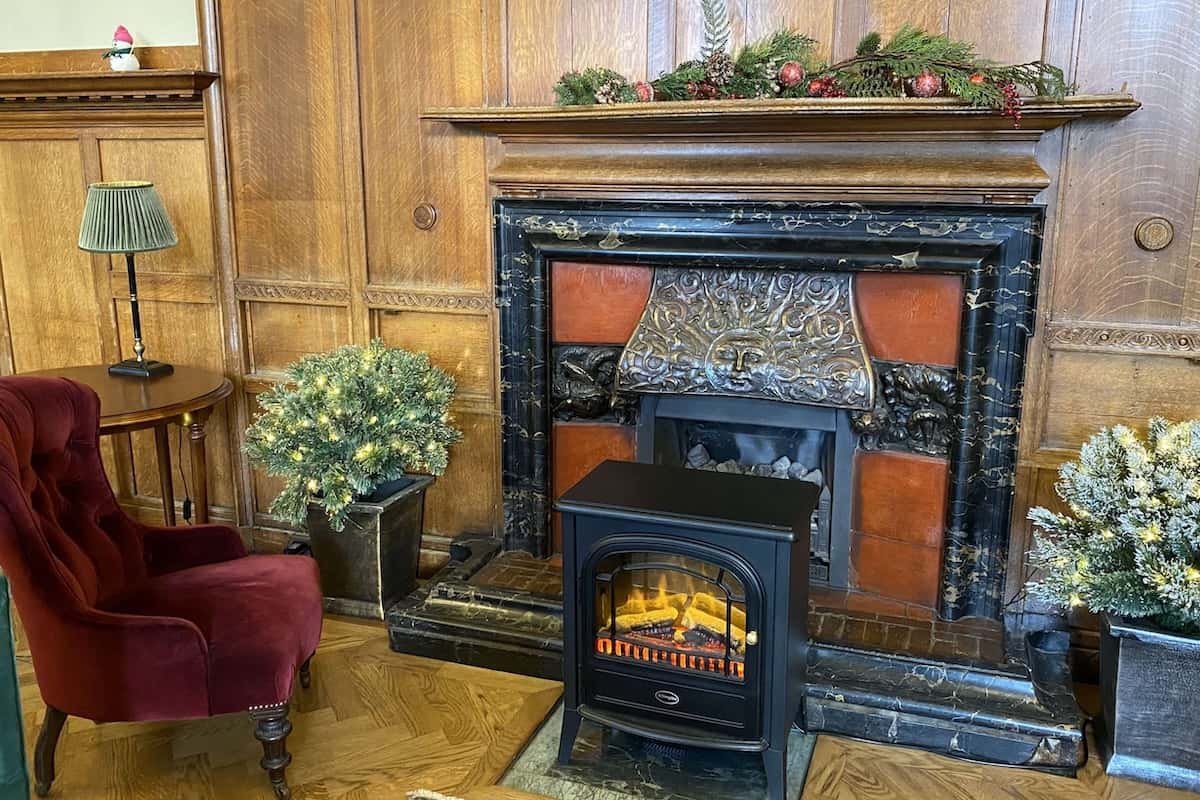
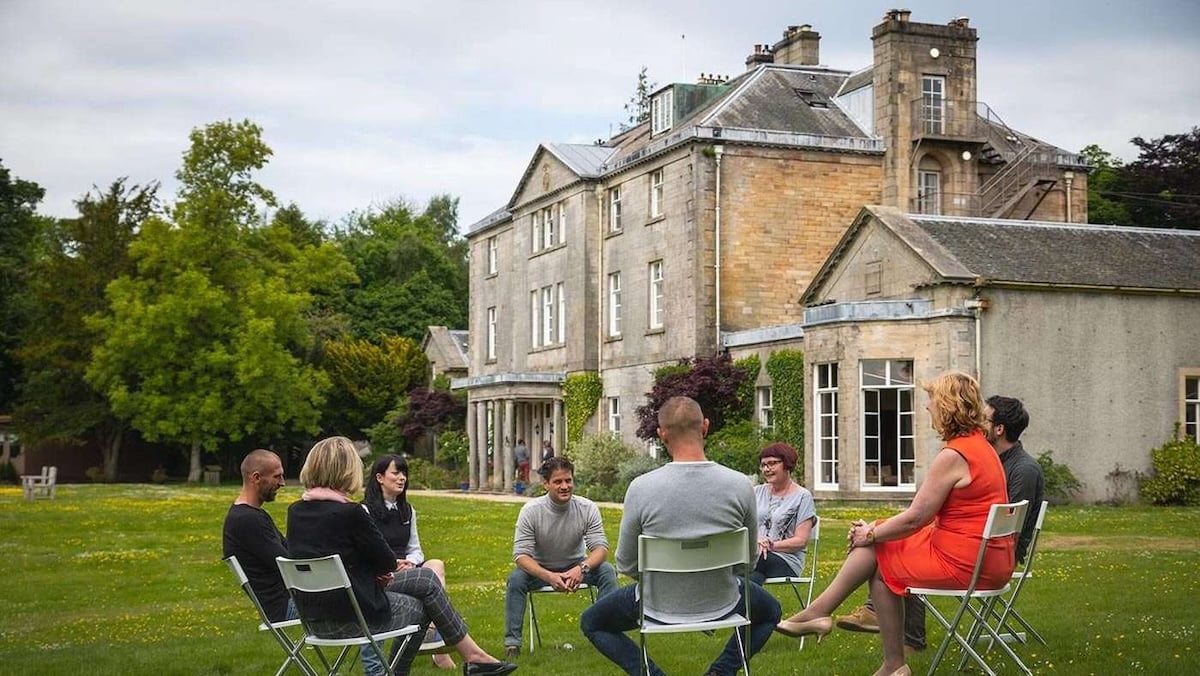



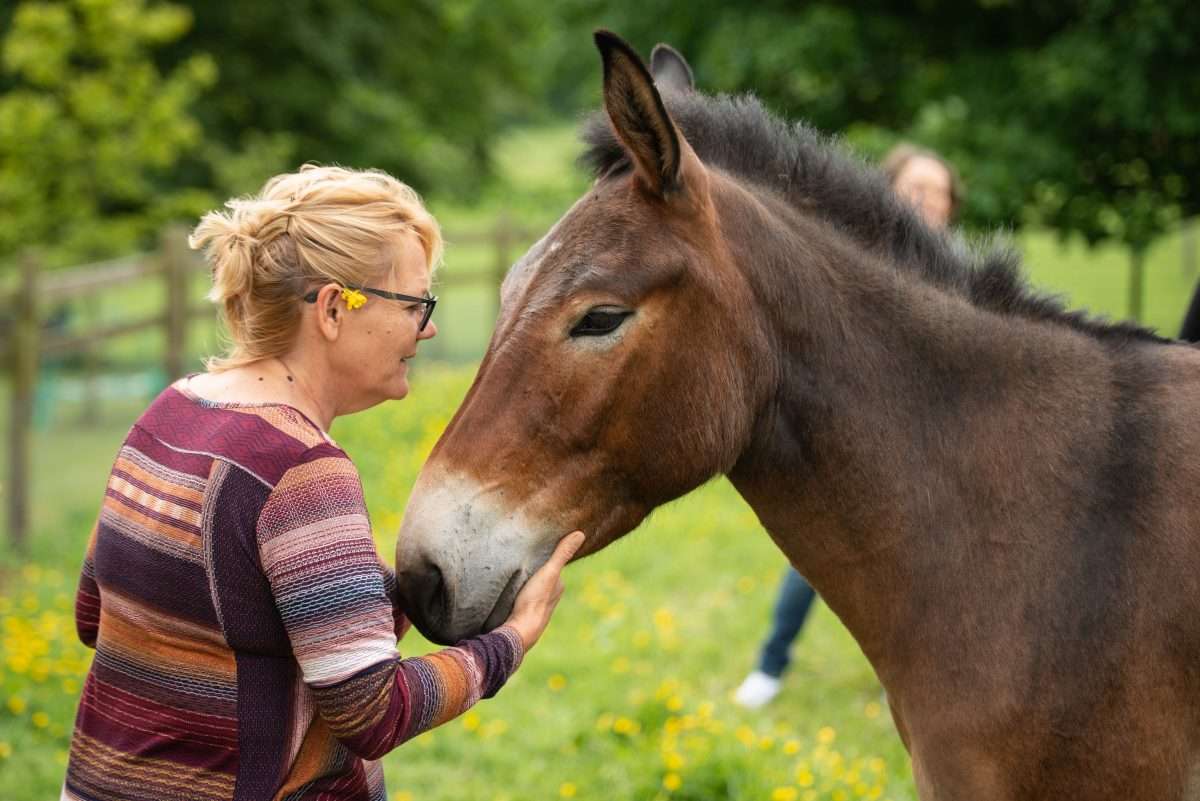

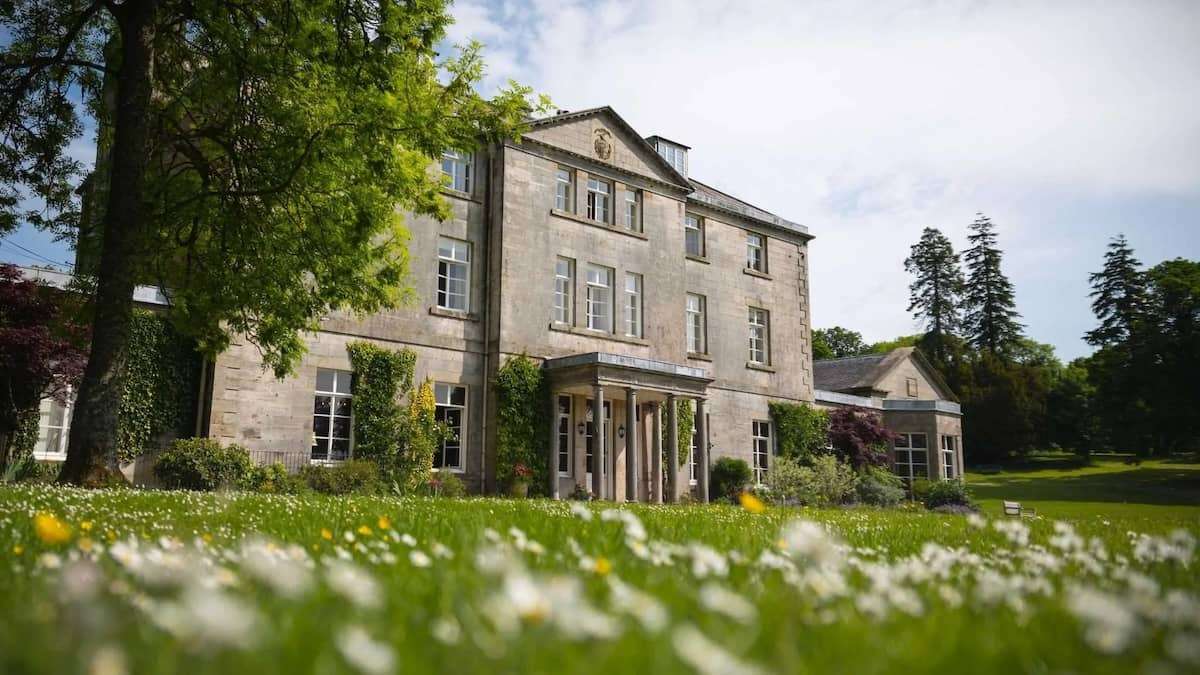
Why People From Glasgow Choose Castle Craig Private Inpatient Rehab
Castle Craig attracts patients from Glasgow seeking high-quality, structured addiction care in a private residential setting. Our countryside rehab centre combines clinical excellence with a tranquil environment to support deep, lasting recovery.
- A Variety of Treatment Lengths (28 Days or Extended): Flexible options allow patients to choose between short-term programmes or longer stays for complex needs.
- Safe, Medically Managed Detox Centre: On-site detox is led by a consultant psychiatrist and a 24/7 medical team, supporting physical and emotional stability.
- Individualised, Evidence-Based Care Plans: Each patient receives a personalised plan that combines therapies, medical support and aftercare to meet individual recovery goals.
- Clinical Expertise in Addiction and Mental Health: Our multidisciplinary team treats addiction alongside co-occurring disorders like anxiety, depression or trauma.
- Discreet, Confidential Residential Environment: Set in rural Scotland, our rehab centre offers privacy, security and peace of mind for all patients.
- Restorative Nature-Based Recovery Setting: Surrounded by rolling hills and woodland, patients benefit from a calming atmosphere and connection to nature.
- Extensive Therapies Available (Individual and Group): We offer a wide range of therapy options, including CBT, DBT, 12 Step facilitation and trauma therapy.
- Structured Continuing Care and Relapse Prevention Support: Discharge planning includes personalised continuing care, relapse prevention and local referrals.
- Expert Co-occurring Disorder Treatment: We address mental health conditions alongside substance use for a fully integrated recovery approach.
- Family Therapy and Weekly Visitation: Family involvement is encouraged through therapeutic sessions, education and regular visiting opportunities on Sundays.
The Team at Castle Craig
Our residential treatment programme was the first of its kind in Scotland and was founded by Peter McCann and Dr Margaret Ann McCann. Our team of therapists, nurses and doctors are led by a highly experienced medical director and consultant psychiatrist, Dr Peter McCann.
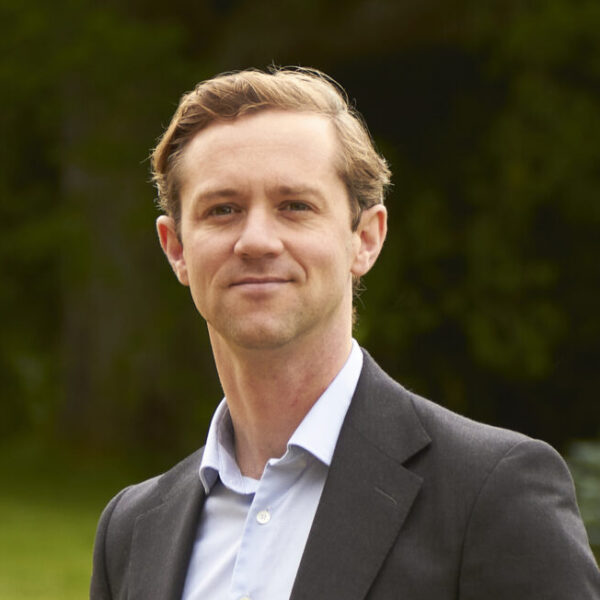



How Much Does Private Inpatient Addiction Rehab Cost in Glasgow?
Private inpatient addiction rehab in Glasgow typically costs between £650 and £1,500 per day, depending on the centre. This means a month of treatment can range from £18,000 to over £40,000, covering accommodation, therapy, medical care, meals and structured support throughout your stay.
The cost of rehab in Glasgow can vary depending on the intensity and length of treatment, the level of personal care required and the type of accommodation provided. More exclusive rehab centres with luxury facilities and comprehensive medical support tend to be priced at the higher end of the scale.

Questions About Drug or Alcohol Rehab?
Castle Craig Rehab Admissions Process for West Scotland and Beyond
Getting help for drug or alcohol addiction starts with a simple step. Our admissions process is designed to be smooth, confidential and supportive, helping people across West Scotland and beyond access care quickly and safely. Here’s what to expect when beginning your journey with Castle Craig:
- Call the Number on This Page to Start Your Journey: A member of our team will answer and guide you through the next steps.
- Talk to an Admissions Specialist in Confidence: We will listen to your situation and answer any questions about rehab and treatment options.
- Complete a Pre-Admission Assessment: This brief clinical assessment helps us understand your needs and prepare for your arrival.
- Receive Confirmation of Admission and Arrange Your Start Date: Once clinically approved, we confirm your place and help coordinate your next steps.
- Plan Travel to the Clinic With Sober Transport Support if Needed: We can help you arrange safe, stress-free travel to our centre.
- Arrive at Castle Craig to Begin Orientation and Detox if Required: You’ll be welcomed, shown around and begin your detox or therapeutic schedule.
- Begin Your Tailored Residential Treatment Plan: With medical and psychological support, you’ll start working towards long-term recovery.
Patients from Glasgow and the rest of Scotland can access our detox and addiction rehab treatment through the following routes. We can arrange admission in under 24 hours as a private patient, and we will need to receive a medical summary from your GP prior to admission.
- As a private patient.
- Through a private medical insurance plan.
- Through the NHS.
Castle Craig Drug and Alcohol Rehab Accepts Private Insurance for Clyde-side Residents
Castle Craig accepts private health insurance for residential addiction treatment near Glasgow, provided the policy includes and is authorised for inpatient rehabilitation cover at our facility. Patients from Glasgow and along the River Clyde can begin rehab treatment with the support of their insurer, helping to reduce out-of-pocket expenses and fast-track admission.
We may be able to accept policies from leading UK-based providers such as Bupa, AXA Health, WPA, Cigna, Aviva, Vitality Health and Allianz. Coverage varies depending on your plan and insurer, so it’s important to confirm with them whether inpatient addiction rehab is included.
Many patients from the Strathclyde or Lanarkshire region use private insurance to access our medically managed detox and therapy-based care. Castle Craig’s admissions team can support you through the insurance admissions process and liaise with your provider during treatment, allowing you to focus on your recovery. Call 01721 546 263 or fill out our online form if you need any further advice on using your health insurance for rehab treatment near Glasgow.
-
AA and NA Groups in Glasgow
You may wish to begin your addiction recovery journey by seeking self-help through peer support groups in Glasgow. Alcoholics Anonymous (AA), Narcotics Anonymous (NA), Cocaine Anonymous and Gamblers Anonymous meetings are organised across Scotland, and Glasgow has a large number of groups available.
These local Glasgow groups provide an invaluable network of support for those suffering from alcohol and drug addiction. They help people to achieve sobriety through a 12 Step programme and network of supporters.
Find Out About Our Private Residential Rehab
Castle Craig offers a free initial assessment for anyone considering private residential rehab for drug or alcohol addiction. This assessment is completely confidential and gives our clinical team the opportunity to understand your situation, answer any questions and advise whether residential treatment is suitable for your needs.
Following your assessment, we can build a personalised treatment plan based on your medical history, addiction severity and therapeutic goals. Our tailored approach also allows us to provide a clear outline of costs so that you can make an informed decision about your next steps towards recovery. Call 01721 546 263 or fill out the form below to get started.
Popular Locations We Serve in the UK and Ireland
London | Belfast | Birmingham | Brighton | Bristol | Cardiff | Dublin | Leeds | Liverpool | Manchester | Middlesbrough | Newcastle | Nottingham |Sheffield | Southampton
Free & Confidential Assessment
Compassionate, expertly delivered evidence-based practices and a patient-centred approach are at the heart of our treatment model. Request a call-back from one of our professionals on any day of the week.
-
Substance Misuse in Scotland and Glasgow
Overall, Scotland’s drug and alcohol problems are the worst within the UK. Alcohol-related mortality continues to be a problem in Scotland, and deaths from chronic liver disease have increased in the last five years.
Residents of Glasgow struggle more with alcohol and drug problems in comparison to other cities in Europe. In Glasgow, the majority of people referred to drug services struggle with alcohol, cannabis, benzodiazepines, and heroin misuse.
Although alcohol misuse among young people has fallen over the past years in Glasgow and the rest of Scotland, Glasgow is near the top of the European table for the use of many drugs including ecstasy, cocaine, and inhalants.
Drug deaths in Glasgow involving heroin, opiates, and benzodiazepines have risen sharply in recent years according to a recent report by BBC Scotland, and rates of deaths from cocaine, gabapentin, and pregabalin are high.
These statistics paint a bleak picture but there is hope for everyone who wants to get better, live a drug-free life, and leave their addiction behind them. We are here to help.
We have seen thousands of people walk through the doors of Castle Craig (many of them from Glasgow), who have gone on to leave to start a new, drug-free life. As you will see from our testimonials, our programme works and recovery is possible with the right help.
-
Drug and Alcohol Misuse Statistics in Glasgow
- In 2022, Glasgow City recorded an alcohol-specific death rate of 31.8 deaths per 100,000 population, higher than the rate for Scotland at 21.1 per 100,000.
- The rates of drug-related deaths have increased in all the Glasgow City Region local authorities in the last two decades. The rate of drug-related deaths has been consistently higher in Glasgow from 2014 onwards.
- As of 2023, the rate of alcohol specific deaths for Glasgow males (47.8 per 100,000 population) is more than three times the rate for Glasgow females (15.8 per 100,000 population).
- Glasgow City has an annual average of 198.8 alcohol-related deaths for those aged 20 and over (from 2011-2016). This is equivalent to 33.1 deaths per 100,000 adults, which is 52% higher than the Scottish rate.
- Between 2021 and 2022, Glasgow was estimated to have between 11,869 and 18,060 problem drug users – nearly 20% of Scotland’s total.